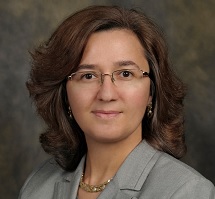Bringing privacy into the picture: new optimization goals for ML/AI in smart environments
Smart assistive environments adapt to the needs and preferences of disabled or elderly users who need help with the activities of daily living. However, the needs and requests of users vary greatly, both due to personal preferences and type of disability. As handcrafting an environment is prohibitively expensive, in recent years significant research was done in systems that use machine learning to create a predictive model of the user. Machine learning, however, typically requires large amounts of data. A stand-alone smart environment, however, only has access to the data collected from its user since it was deployed. A possible solution is to perform centralized, cloud-based learning by pooling the training data collected from multiple users. However, uploading data collected from the personal habits of elderly and disabled users create significant security and privacy concerns.
In this talk, we investigate the type of data sharing necessary for learning user models in smart environments and propose several novel considerations. We point out that data sharing is only ethical if the user derives a benefit from it. This implies that the decision to share data must be periodically revisited, it is not a commitment extending indefinitely in the future. We study the data sharing decisions made by users under several machine learning frameworks: local, cloud, and federated learning. We show that most users only benefit from data sharing for a limited interval after the deployment of the system. We also investigate machine learning techniques that predict whether the user will benefit from sharing the data before the data is shared.
Date and Time
Location
Hosts
Registration
-
 Add Event to Calendar
Add Event to Calendar
- University of Maryland, Baltimore County
- 1000 Hilltop Circle
- Baltimore, Maryland
- United States 21250
- Building: ITE
- Room Number: 325B
- Click here for Map
Speakers
 Damla Turget
Damla Turget
Biography:
Damla Turgut is Charles Millican Professor and Chair of Computer Science at the University of Central Florida (UCF). She is the co-director of the AI Things Laboratory. She held visiting researcher positions at the University of Rome ``La Sapienza'', Imperial College of London, and KTH Royal Institute of Technology, Sweden. Her research interests include wireless ad hoc, sensor, underwater, vehicular, and social networks, edge/cloud computing, smart cities, smart grids, IoT-enabled healthcare and augmented reality, as well as considerations of privacy in the Internet of Things. Dr. Turgut serves on several editorial boards and program committees of prestigious ACM and IEEE journals and conferences. Her most recent honors include the NCWIT 2021 Mentoring Award for Undergraduate Research (MAUR), the UCF Research Incentive Award, and the UCF Women of Distinction Award. Since 2019, she serves as the N2Women Board Co-Chair where she co-leads the activities of the N2Women Board in supporting female researchers in the fields of networking and communications. She is an IEEE ComSoc Distinguished Lecturer, IEEE Senior Member, ACM Senior Member, the Chair of the IEEE Technical Committee on Social Networks, and the Chair of the IEEE Technical Community on Computer Communications (TCCC).

